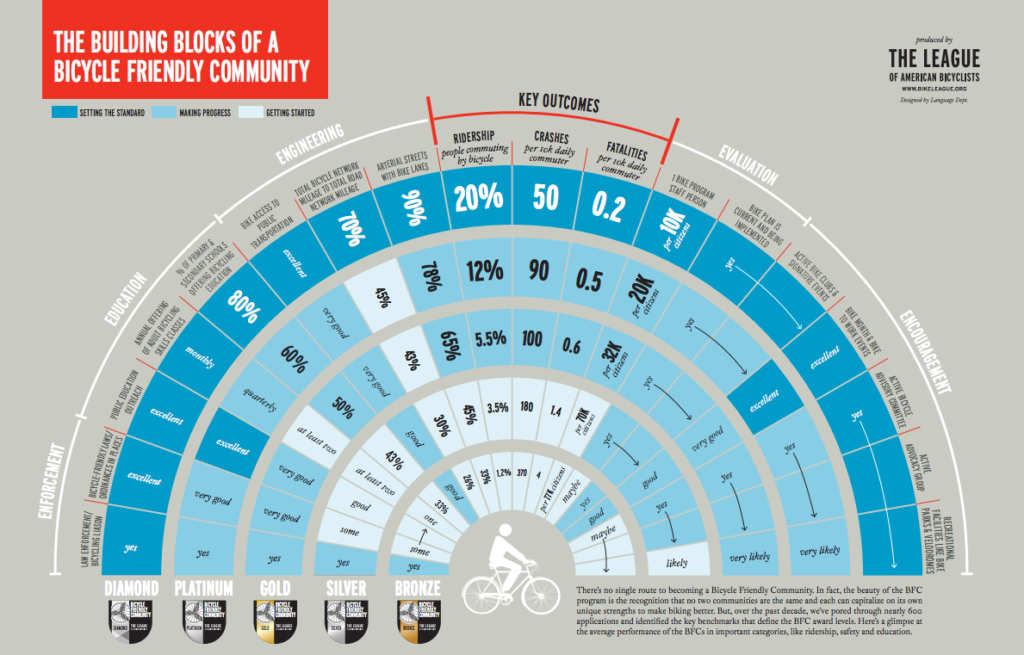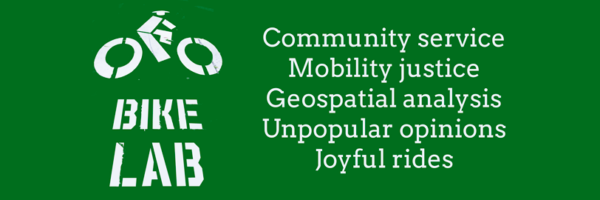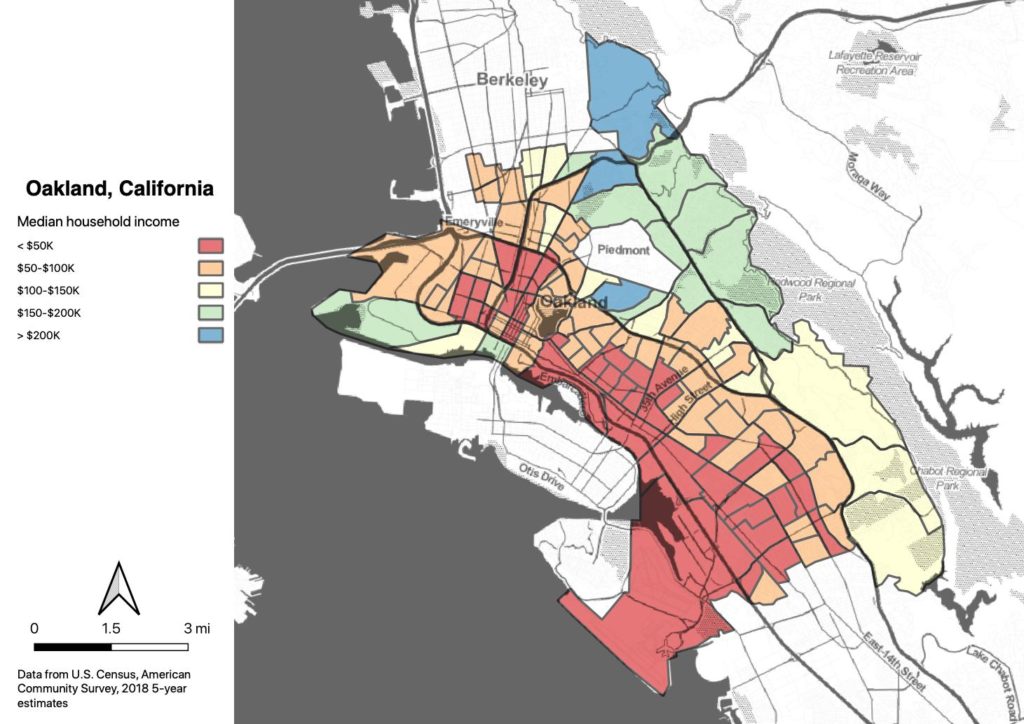My feed today lit up with friends sharing the news that Oakland has been awarded Gold status in the League of American Bicyclists’ “Bicycle Friendly Community” program, which has been a goal of the advocacy movement here for some time.
As you might expect, I have an opinion about it.
There’s nothing particularly wrong about obtaining the status, but it’s important to note that LAB does little to assesses “Friendliness” or “Community.” In its 54-page questionnaire there are only a couple questions which could be construed as community-related (whether there are bike rides targeted at communities based on gender, ethnic, or racial status, and whether there is at least one bike co-op or non-profit shop). There is one small section which asks about whether an equity program exists and whether there is outreach to disadvantaged communities. But the vast majority of its focus is on infrastructure, advocacy, and policy, and resources devoted to those things.

My biggest concern is LAB’s continued emphasis on enforcement as a policy goal. We know this to be worrisome in Oakland, and in the U.S. in general, because of structural problems with racially-biased policing. The LAB questionnaire entirely ignores this problem; it asks whether police agencies capture data on bike accidents, but not whether they capture data on race and ethnicity. It is disingenuous for the program to gloss over this issue.
In my consulting I’ve done a lot of work on developing success metrics. One of the truisms about metrics is that “you get what you measure”: that the metrics you create, especially those attached to rewards, will influence organizational behavior. It’s a cautionary truism; if your metrics aren’t aligned with your strategic goals, you will be encouraging the wrong things.
I believe the bicycle can provide opportunities for disadvantaged communities. I believe it can be a tool which helps us better understand the city. I believe it can heal historical divisions of race, ethnicity and class. But only if we work to make that happen.
What would the Bike Lab version of a Bicycle Friendly Community study look like? I’ll have to think about it. I know that it would measure the funding provided to community events. It would measure the number of people running organizations like Rich City Rides, the Scraper Bike Team, or Cycles of Change, not just the number of people working as city staff. It would measure the racial, ethnic, and gender diversity of the people riding bikes, and whether group rides include people from different communities and backgrounds. It would assess whether the bicycling community pushes the city to do a better job of addressing equity and social justice.
I would want to know: Does bicycling actually make the city friendlier?
The good news is, Oakland is doing better than most cities on those kinds of metrics. But LAB needs to do a better job of emphasizing the things that really contribute to friendly communities.


